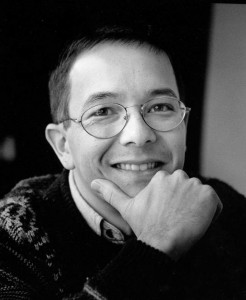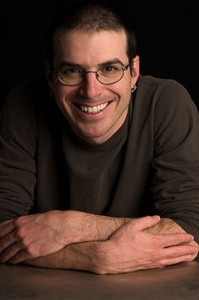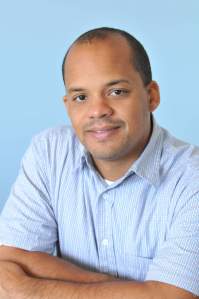Around The Traps: Shaun Tan, Paolo Bacigalupi & Professor John Johnson of Caltech
Every now and then—okay, quite often really 🙂 —I see an article that I have to share.
Bookish Dreaming: Celebrating Shaun Tan
Celebrating Shaun Tan by Australian writer, editor and academic, Gillian Polack, on Bibliobuffet is one of those articles. Here’s how it begins:
“Today I’m celebrating. Shaun Tan has just won a shared Academy Award for his animation, The Lost Thing (following up with an Australian Ditmar Award), and the Astrid Lindgren Award for his work in children’s literature. This is a good moment. Not as good as the moment when I first discovered his work, or the moment when I met him and discovered that I could be shy of someone with whom I have good friends in common and who is gentle and affable and very, very Australian. Shaun Tan is that rare thing—a genuine genius. Enough to drive anyone to shyness.
I want to celebrate, however, and to share his brilliance with you …”
To read the full article, click here.
Checking out Bibliobuffet in full is worthwhile, too … Yet another interesting bookish site: yahoo!
—
An Interview with Paolo Bacigalupi (in Two Parts)
You may recall that two of my favourite books last year were The Windup Girl and Shipbreaker, both by Paolo Bacigalupi. And The Windup Girl—entirely deservedly in my opinion—was cowinner of the Hugo Award for Best Novel (together with China Mieville’s The City & The City.)
Recently, James Long interviewed Paolo Bacigalupi on the Orbit blog. Here’s a snippet from Part 1:
” … So in the end, I think the reason I wrote The Windup Girl was at least partially because it was the most ambitious and difficult thing that I could attempt … Of course, then the book turned out to be even more challenging than I’d originally thought. It had a lot of characters and storylines, it was set in a culture that I needed to learn a lot about, and the mechanics of the world were fanciful enough that I wasn’t sure readers would be able to accept it at novel length. In the end, it took me about three years to write, not including the couple years before where I’d been working out the world and writing short stories set there. So, that’s one part, at least. It helped that it seemed like it was a relevant story, and that it had something relevant to say about agribusiness, and energy and maybe economic colonialism …”
To read the full first interview, click here.
In the second interview, Paolo Bacigalupi talks a little bit more about being a writer:
“It’s hard for me to have faith in my stories as I work on them. Hard to believe they should be written. Hard to believe that they’re worthwhile. Hard to believe that they aren’t stupid. Being surrounded by other writers ameliorates that, for me, at least …”
Again, to read the full second part, click here.
—
Navigating A Career: Tips from an Astrophysicist
Talking work practice brings me to a third post that struck a chord this week—not from a writer this time, but from an astrophysicist, Professor John Johnson of Caltech. (Although as a successful academic, I imagine he writes a fair amount as well.) His advice on navigating a career was for graduate students in his academic discipline, but nonetheless, some of his observations resonated with both my personal experience and observation of the writing life:
” … The field of astronomy comprises extremely smart, technically-gifted people who could easily have made very comfortable salaries after they graduated with their B.S. degrees. Yet astronomy grad students spend their days in cramped offices working 10 to 14 hour days for annual salaries that place them squarely below the poverty line. My point is that we’re not doing astronomy for the money. Most of us are in this field because we find it inspiring, exciting and…fun. Right? Isn’t that why were here? Yet, sadly, some graduate students spend a lot of their time being stressed-out and unhappy …”
Am I wrong to think that you could substitute writer / writing career at so many places in that paragraph? I may get shouted down by my fellow writers, but somehow I don’t think so …
To read the full article, click here.











Thank you for sharing my article. I just came back from creative camp (where I was the writing teacher and origami teacher and historical stuff teacher) and found it. It made coming home just as nice as being on camp!
Gillian, You’re welcome. I think it’s a great article and so of course I wanted to share. 🙂